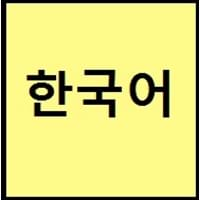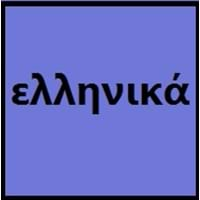Countries
China, Jilin Province, North Korea, South Korea, Yanbian
Cyprus, European Union, Greece
National Language
North Korea, South Korea
Albania, Cyprus, Egypt, France, Greece, Italy, Romania, Turkey, Ukraine
Second Language
Not spoken in any of the countries
Roman Empire
Speaking Continents
Asia
Asia, Europe
Minority Language
Japan, People's Republic of China, Russia, United States of America
Albania, Armenia, Australia, Hungary, Italy, Romania, Turkey, Ukraine
Regulated By
The National Institute of the Korean Language
Center for the Greek language (Κέντρον Ελληνικής Γλώσσας)
Interesting Facts
- Korean has borrowed words from English and Chinese.
- Korean has two counting systems. First, is based on Chinese characters and numbers are similar to Chinese numbers, and second counting system is from words unique to Korea.
- Greek is the longest documented language of all the Indo-European Langauges.
- The official language of education in the Roman Empire was Greek.
Similar To
Chinese and Japanese languages
Armenian
Derived From
Not Available
Latin
Alphabets in
Korean-Alphabets.jpg#200
Greek-Alphabets.jpg#200
Scripts
Hangul
Arabic, Latin
Writing Direction
Left-To-Right, Horizontal, Top-To-Bottom
Left-To-Right, Horizontal
Hello
안녕하세요. (annyeonghaseyo.)
γεια σας (geia sas)
Thank You
감사합니다 (gamsahabnida)
ευχαριστώ (ef̱charistó̱)
How Are You?
어떻게 지내세요? (eotteohge jinaeseyo?)
πώς είσαι (pó̱s eísai)
Good Night
안녕히 주무세요 (annyeonghi jumuseyo)
Καληνυχτα (Kali̱nychta)
Good Evening
안녕하세요 (annyeonghaseyo.)
καλησπέρα (kali̱spéra)
Good Afternoon
안녕하십니까 (annyeong hashimnikka)
Καλὸ ἀπόγευμα (Kaló apóyevma)
Good Morning
안녕히 주무셨어요 (An-yŏng-hi ju-mu-shŏ-ssŏ-yo)
καλημέρα (kali̱méra)
Please
하십시오 (hasibsio)
παρακαλώ (parakaló̱)
Sorry
죄송합니다 (joesonghabnida)
συγνώμη (sygnó̱mi̱)
Bye
안녕 (annyeong)
αντίο (antío)
I Love You
당신을 사랑합니다 (dangsin-eul salanghabnida)
Σε αγαπώ (Se agapó̱)
Excuse Me
실례합니다 (sillyehabnida)
Με συγχωρείτε! (Me synhoríte)
Dialect 1
Jeju
Cappadocian Greek
Where They Speak
South Korea
Greece
Dialect 2
Gyeongsang
Griko
Where They Speak
South Korea
Italy
Dialect 3
Hamgyŏng
Mariupol
Where They Speak
China, North Korea
Ukraine
Native Name
한국어 (조선말)
ελληνικά
Alternative Names
Hanguk Mal, Hanguk Uh
Ellinika, Graecae, Grec, Greco, Neo-Hellenic, Romaic
French Name
coréen
grec moderne (après 1453)
German Name
Koreanisch
Neugriechisch
Pronunciation
Not Available
[eliniˈka]
Ethnicity
Koreans
Greeks or Hellenes
Origin
Before 1st century
1500 BC
Language Family
Koreanic Family
Indo-European Family
Subgroup
Not Available
Hellenic
Branch
Not Available
Not Available
Early Forms
Old Korean, Middle Korean and Korean
Proto-Greek, Mycenaean Greek, Ancient Greek, Koine Greek and Medieval Greek
Standard Forms
Pluricentric Standard Korean, South Korean standard and North Korean standard
Modern Greek
Signed Forms
Korean Sign Language
Greek Sign Language
Scope
Individual
Individual
ISO 639 6
Not Available
ells
Glottocode
kore1280
gree1276
Linguasphere
45-AAA
56-AAA-a
Language Type
Living
Living
Language Linguistic Typology
Subject-Object-Verb
Subject-Verb-Object
Language Morphological Typology
Agglutinative
Fusional, Synthetic
Korean and Greek Speaking population
Korean and Greek speaking population is one of the factors based on which Korean and Greek languages can be compared. The total count of Korean and Greek Speaking population in percentage is also given. The percentage of people speaking Korean language is 1.14 % whereas the percentage of people speaking Greek language is 0.18 %. When we compare the speaking population of any two languages we get to know which of two languages is more popular. Find more details about how many people speak Korean and Greek on Korean vs Greek where you will get native speakers, speaking population in percentage and native names.
Korean and Greek Language Codes
Korean and Greek language codes are used in those applications where using language names are tedious. Korean and Greek Language Codes include all the international language codes, glottocodes and linguasphere.





